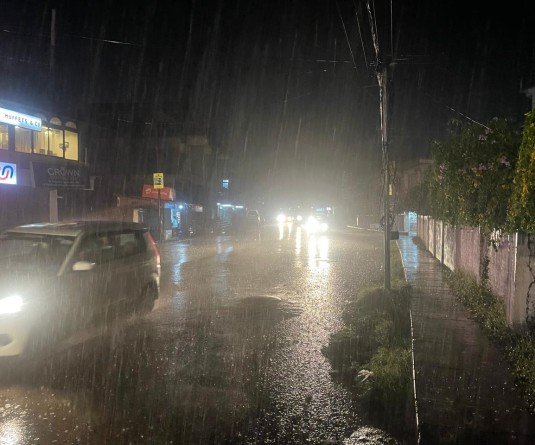
Morung Express News
Dimapur | September 30
In the context of the Naga situation, is the “There” better than the “Here” or vice-versa?
Naga writer and chronicler Kaka D Iralu asked thins during his keynote address at the state level seminar on ‘Nagas in transition: from myth to modernity’ organized by Eastern Christian College (ECC) here on Friday.
Even as the outside world and the present educated Naga generation tend to “paint a picture of ignorance, savagery and mythology” while talking about past Naga society, Iralu took the participants of the seminar to a journey of “revisiting” the socio cultural past (democracy, legal and land ownership) of the Nagas and urged them ponder whether Nagas were “indeed savages yesterday or on the contrary, a most cultured people.” According to Iralu, Naga democracy, unlike many other democracies, was completely free from the influence of any caste or class system.
“Equality of every individual was a unique feature of our democracy which spread from the family level, to clan level and onto the village level. In this democracy, there was no ‘high born’ or ‘low born’ that can uplift or demean an individual’s status in the village polity. This equality of status was a uniform practice in every Naga village”, he said.
Iralu quoted the comments of Captain Butler, a British soldier and anthropologist who came in contact with the Nagas in 1842: “A purest form of democracy exist among these people…everyone follows the dictates of his own conscience…something unimaginable to be in existence for even a single day.”
He also said that long before Thomas Jefferson penned down the famous words, “All men are born equal”, Naga forefathers were already practicing that reality in their village republics.
On Naga jurisprudence, Iralu said legal justice was pronounced not in a courtroom but in the court of the lawgiver - God or the creator. He said oath taking or swearing ceremonies were done under the open skies where the oath taker pronounces terrible consequences upon himself and his posterity in case he was making a false claim over a dispute.
“An individual’s crime could also implicate a whole clan. And so, because of these restraints, no individual can do whatever he likes in the given society. In such a system of law there was also no need for jails or police force to enforce law and order”, he said.
Iralu said while land in other societies or nations belonged to a king, government or feudal landlord, in Naga society, land is privately owned by individual villages and shared by clans and families in private ownership.
He said under this system, any individual in any Naga village is a legitimate land owner by virtue of his membership (or citizenship) to his own native village.
Coming to the present reality, Iralu said Indian democracy under which Nagas live today, has nullified even the right to life through laws like the Armed Forces Special Act 1958, Disturbed Area Act 1955 and Unlawful Activities Prevention Act 1967.
“As for our legal rights, even after seven decades of Indian so called democratic rule, the lives of over two hundred thousand Nagas who have died to preserve our ways of life, remains un-compensated and un-addressed. As for our legal rights pertaining to our day to day affairs, many of our cases are pending in the courts lost in a maze of stay orders where justice is denied and kept under suspension”, he stated.
He further said that equal land ownership has been replaced by “multimillionaires in our midst, who by collaborating with the invaders of our land have made their millions and now own thousands of acres of prime land”, at the expense of poor villagers who are compelled to sell their lands to maintain their families.
While clarifying that he is not calling for Nagas to remain static in the past, Iralu however stated that “it would be a dangerous adventure on our part to just plunge into the modern world without a knowledge of who we are and what we were.” The need of the hour, he stated is to guide the younger generation into the 21st century, while firmly anchored in our unique past.
Earlier, Vice Chairman, Managing Board ECC, Ajungla Longkumer, in her inaugural speech said the struggle by different ethnic groups, particularly the Nagas, for their identity and justice has brought forth questions to the process of globalization and modernity. Ajungla said identity is a way of asserting one’s place in society and history, which provides a framework for people’s self-understanding.
“These elements in the life of the Nagas have been suppressed. A conscious recovery of them is essential in our struggles for dignity. The Nagas’ struggle for identity is an attempt to secure the rightful space for indigenous people in the wider human discourse and relationship”, she said.
Ajungla informed that the seminar was organized with the purpose to exchange ideas, an exposure to understanding the identity of the Nagas and aid in observing the process of transformation in all aspects of Naga society.



